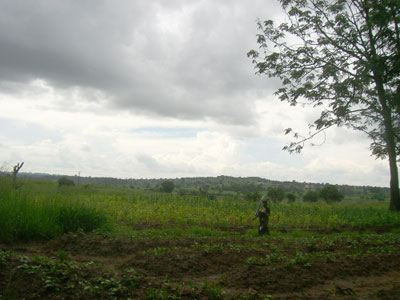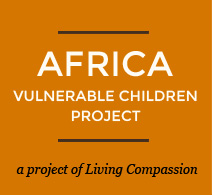Overnight we realized we had a stumbling block to the completion of our NGO papers: Theresa does not have a National Registration Card, which seems to be the Zambian equivalent of a social security card. A photocopy of a passport or NRC card is required for each board member, and since she is a key member of our board, we feared she would need to go to Lusaka (a five-hour drive) and wade through formidable bureaucracy to replace her long-ago lost card. In hopes of avoiding that scenario, we began our morning with a trip to the Deputy District Commissioner's office to explain our situation. Much to our relief, he said she could simply add it to the papers later.
After a series of errands, we drove out to Kantolomba where we had the great pleasure of seeing the students in our [the school Living Compassion has started] school. One of the teachers at the school is a talented seamstress who has begun sewing uniforms for the 100 tiny pupils. The children are unbelievably adorable in their slightly too-large-made-to-be-grown-into uniforms. We also visited a nearby school where the children who have graduated from our older pre-school class are now in first grade. The school is a government school, just opened and struggling to come up with the resources to employ teachers as well as get paper and pencils and other supplies. We are excited that very soon Living Compassion will be assisting to bring quality primary education to the compound. As Pauline observed one day during the trip, "Education is the most generous gift you can give to somebody. Once you have given it, it can never be taken away."
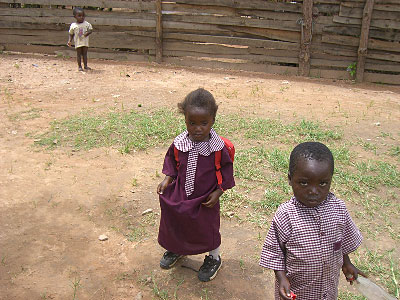
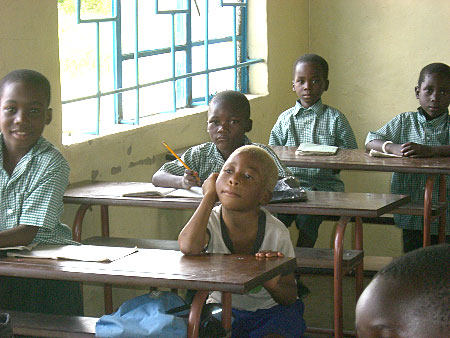
The new first graders. Twaibu, a former Living Compassion student, with his head in his hand.
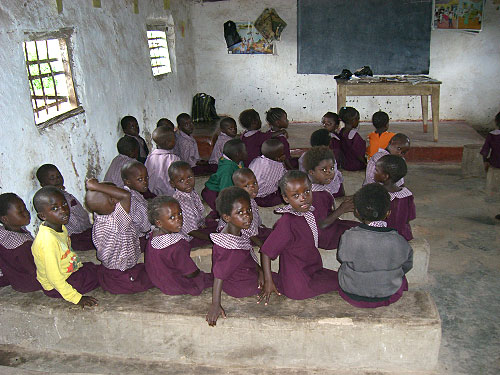
The older class in the Living Compassion school
We finished several other scouting missions--looking into bringing electricity onto our property, deciding how best to bring water from the future well into the community, identifying good spots for additional wells--then headed back to Ndola center. On the way we took a detour to visit another compound on the outskirts of the city that uses a water kiosk system to dispense water to the community. It is one method we are considering for distribution once the wells are dug.
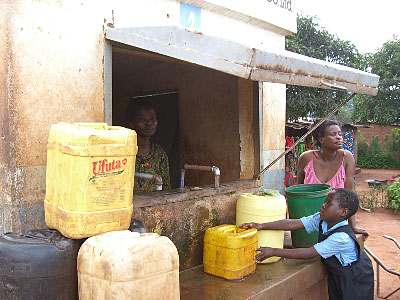
Water kiosk
Once back in town, we met with Patrick, the head of the Ndola Health Department, who is responsible for the trash pick-up program in Kantolomba. They have had problems with their front-end loader, making it difficult to keep their promise to collect garbage in Kantolomba every week. Servicing large equipment is tricky in a place where very few people are trained in such work. In talking with him about employing workers to help with the trash program in Kantolomba, we learned that the minimum monthly wage for a full-time worker in Zambia is about $60 U.S. We also learned that several foreign-owned copper mines find ways around paying their workers minimum wage and pay as little as $12 a month. As usual, huge profits leave the country with very little benefit to the local community.
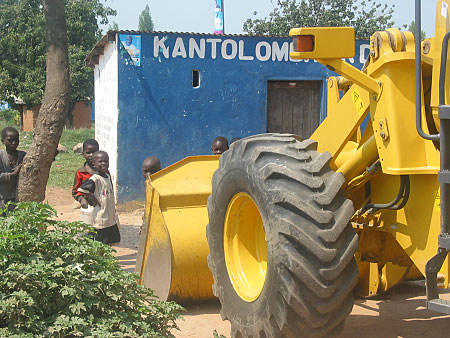
The front end loader
As we finished our meeting, Patrick pledged to assist in any way he can with the work in Kantolomba. We are constantly amazed at the generosity of time and resources extended to us by our Zambian colleagues.
We finished up several other odds and ends in town and arrived back at the guesthouse just before the heavens opened with a beautiful evening storm.
Jen focused on paperwork while Dave cooked another tofu dinner. It's dangerous having tofu in Africa for us monks–there is a danger of not coming home.
